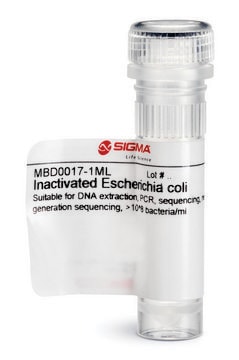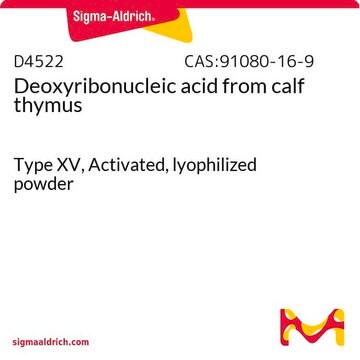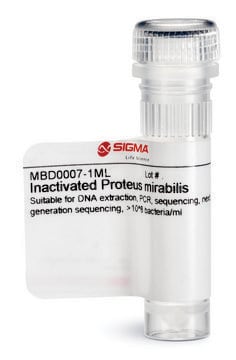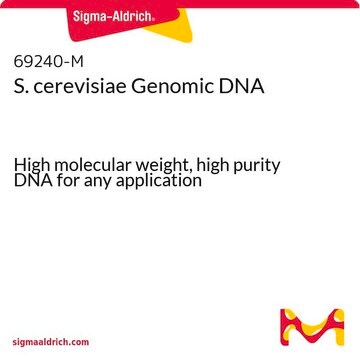MBD0013
Microbial DNA standard from Escherichia coli
Suitable for PCR, sequencing and NGS, 10 ng/μL
Sinónimos:
E.Coli
About This Item
Productos recomendados
Quality Level
form
liquid
concentration
10 ng/μL
technique(s)
DNA extraction: suitable
DNA sequencing: suitable
PCR: suitable
suitability
suitable for restriction endonuclease digests, PCR amplification, Southern blots, and sequencing reactions
shipped in
ambient
storage temp.
−20°C
General description
Read here how to use our standards to ensure data integrity for your microbiome research.
Application
Suitable for Quantitative standard for PCR, Sequencing and NGS
Features and Benefits
- Individual microbial standard for microbiomics and meta-genomics workflow
- Suitable standard for PCR, sequencing and NGS
- Improve Bioinformatics analyses
- Increases reproducibility
- Compare results lab to lab
Physical form
Other Notes
Storage Class
12 - Non Combustible Liquids
wgk_germany
WGK 1
flash_point_f
Not applicable
flash_point_c
Not applicable
Certificados de análisis (COA)
Busque Certificados de análisis (COA) introduciendo el número de lote del producto. Los números de lote se encuentran en la etiqueta del producto después de las palabras «Lot» o «Batch»
¿Ya tiene este producto?
Encuentre la documentación para los productos que ha comprado recientemente en la Biblioteca de documentos.
Los clientes también vieron
Artículos
DNA standards enhance metagenomics research integrity, offering precise species study and mixed community standards.
DNA standards enhance metagenomics research integrity, offering precise species study and mixed community standards.
DNA standards enhance metagenomics research integrity, offering precise species study and mixed community standards.
DNA standards enhance metagenomics research integrity, offering precise species study and mixed community standards.
Nuestro equipo de científicos tiene experiencia en todas las áreas de investigación: Ciencias de la vida, Ciencia de los materiales, Síntesis química, Cromatografía, Analítica y muchas otras.
Póngase en contacto con el Servicio técnico











